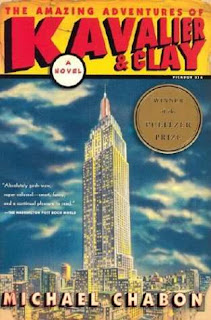I've been filling out the Proust Questionnaire pretty much yearly since early in my college career. I never consult previous years' responses while I fill it out, although I do compare answers afterward. Each year, for the years that I've done it, I've listed Roger Ebert as one of my heroes.
"The story can either be told in a few sentences, or not told at all."
Because he was kind.
I never met the guy, despite having lived in one of his
towns for all but 4 ½ years of my life. I never made it to Ebertfest. (Where was I last year and why didn’t I go?) However, I believe
that an unkind man would be unable to capture the tone Ebert did from time to
time in his reviews and blog entries. He was a secular humanist. He had
wide-ranging sympathies. He had made his mistakes and learned from them. He
appeared not to have any regrets.
“Both Curtis and Lemmon are practicing cruel
deceptions--Curtis has Monroe thinking she's met a millionaire, and Brown
thinks Lemmon is a woman--but the film dances free before anyone gets hurt.
Both Monroe and Brown learn the truth and don't care, and after Lemmon reveals
he's a man, Brown delivers the best curtain line in the movies. If you've seen
the movie, you know what it is, and if you haven't, you deserve to hear it for
the first time from him.”
Because he was from Urbana and he wasn’t afraid to love
it.
Everyone in Chicago, from the Tribune (ha!) to the Sun-Times and all the rest, ran to present Ebert as the
ultimate post-Studs Terkel Chicagoan. That may be true, but he did
Champaign-Urbana proud too. He was intelligent, unpretentious, down to earth,
self-deprecating, and funny. Again and again in his writing (even in his
reviewing), he held up moments from his childhood in Urbana as significant. He
didn’t write it off as “downstate,” reduce it to a college town, or fixate on
the corn and soybeans. He lived in Chicago and, yes, he was a Chicagoan, but
Champaign-Urbana got the film festival, because where else would it be? Home is
home.
"On the news last week, there was the story of a child
killed by stray gunfire. He was in the middle of a basketball game in a city
park. One of his teammates told the camera: "It's a shame he never had the
experience of life." There are fuzzy shots of a surveillance camera
showing a white car with a sunroof speeding from the site. Inside were probably
young men empowered by firearms and an automobile to shoot stupidly into a park
and make a pathetic gang gesture. The Interrupters were once such young men —
and women. They once were blind, but now they see. […] When I was a child, I
rode my bike home from school down a daily network of neighborhood streets. On
one street, some kids were sitting on a porch. They pulled me off my bike,
punched me and told me it was "their" street. They were white like
me. They had no idea what school I went to. By protecting "their"
street, they were gaining esteem. I have no doubt they felt good afterward."
Because he was serene in the face of illness.
What could have been the end of his career marked a new
period of intense prolificacy and, I think, beautiful writing. He grappled with
big questions with humor and perspective. He got frustrated. He was human. He
made accommodations. He kept doing his job.
“The reason that O'Brian's readers are so faithful (I am
one) is because this friendship provides him with a way to voice and consider
the unnatural life of a man at sea: By talking with each other, the two men
talk to us about the contest between man's need to dominate, and his desire to
reflect.”
Because he could write.
This is the kind of writer I want to be: insightful,
approachable, populist. He was a smart man, and it showed. He was funny.
“As a director he has never been willing to settle for
plot; he is much more interested in character and situation, and likes to
assemble unusual people in peculiar situations and stir the pot.”
Because he had great taste in movies.
And I don’t just mean fine taste. I mean he liked what he
liked unapologetically, and 90% of the time I agreed with him. He was just as
likely to give an art-house film four stars as a blockbuster. He cared about
things like acting, direction, script, and cinematography, and whether it came
with millions of dollars of visual effects or whether it was subtitled or
whether it was for children didn’t matter. He disliked a lot of movies, but he
only hated the ones that really deserved it.
“By the end of the movie, you find yourself reacting to
the weddings, and the funeral, almost as you do at real events involving people
you didn't know very well, but liked, and wanted to know better.”
 I started thinking about this after finishing The Amazing Adventures of Kavalier & Clay, which is unquestionably this year's Cloud Atlas, albeit without a movie or a soundtrack to buoy the obsession along. This is a book I put off reading for years, because I had heard it was sad, and because I was at a low ebb in my interest in reading "immigrant stories" and blah blah blah.
I started thinking about this after finishing The Amazing Adventures of Kavalier & Clay, which is unquestionably this year's Cloud Atlas, albeit without a movie or a soundtrack to buoy the obsession along. This is a book I put off reading for years, because I had heard it was sad, and because I was at a low ebb in my interest in reading "immigrant stories" and blah blah blah.
